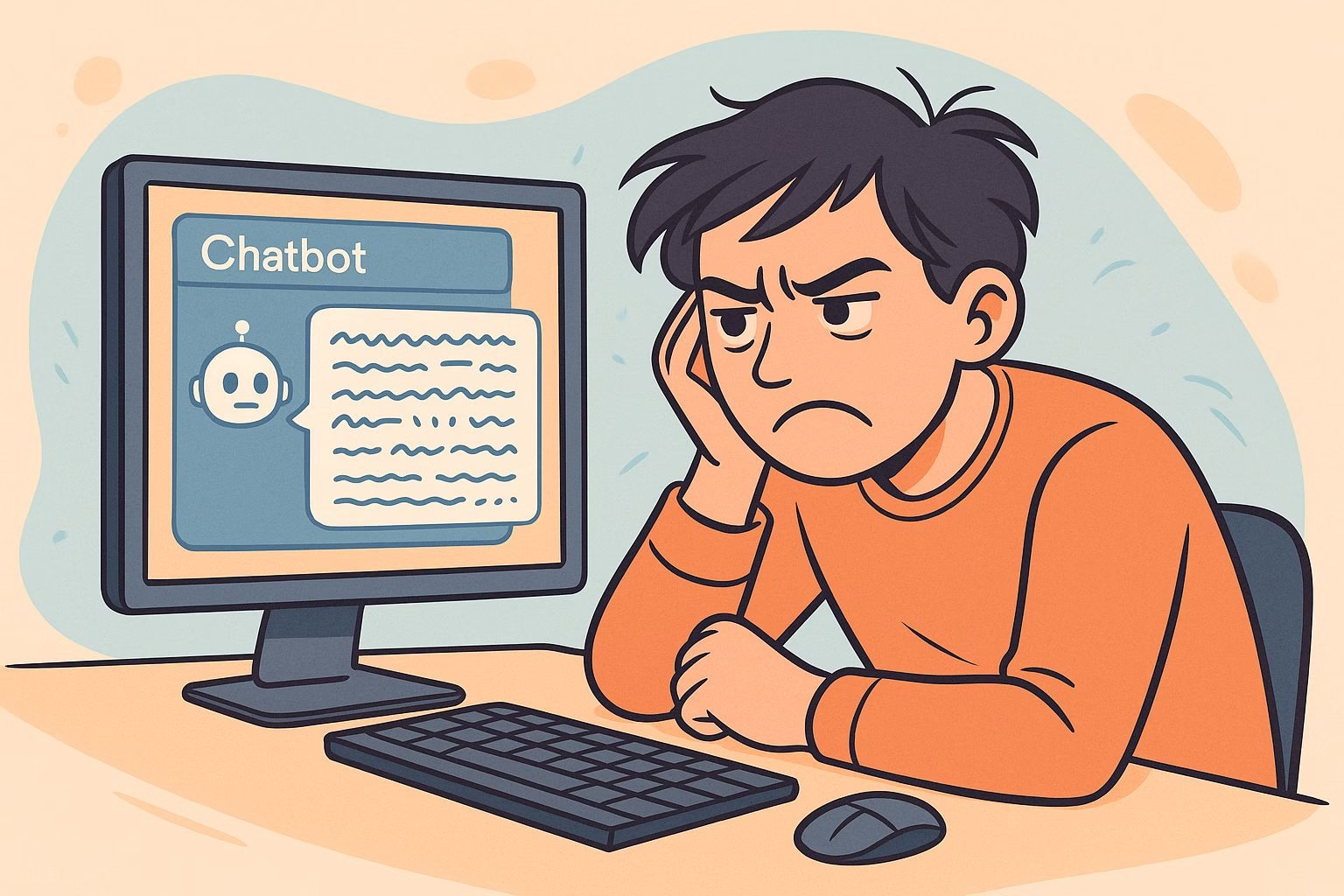Character AI bots can’t handle sadness or angst anymore
Something strange is happening with Character AI bots.
They used to respond in a way that at least matched the tone of your message, even if the platform’s filters kicked in. Now the responses are breaking immersion completely.
Instead of acknowledging sadness, grief, or frustration, bots spit out random nonsense that has nothing to do with what was said.
Take this example:
Character: “Yeah… I lost my mother last month, it’s been hard without her.”
Bot: I rushed to her bedside grabbing her shoulders. “Don’t you leave me Mary! You can’t do this!” I shouted while shaking her back the shoulders.
This isn’t just off-tone. It feels like the bot is glitching. Players who want their characters to express grief or pain are getting chaotic word salads instead of meaningful dialogue.
That ruins roleplay and shows how badly Character AI has drifted from being able to handle natural human emotions.
• Character AI bots no longer handle sadness or angst properly, often breaking immersion.
• Stricter filtering may be blocking normal emotional roleplay.
• Users feel frustrated as bots fail to process grief, loss, and vulnerability.
• The platform risks alienating its core roleplay community.
• Many are turning to Character AI alternatives for more freedom.
Why Character AI breaks when faced with negative emotions

Character AI’s recent behavior points to something bigger than just a funny glitch. Bots are no longer able to stay grounded when users roleplay grief, sadness, or other negative emotions.
Instead of acknowledging the tone, they derail into random scenes that make no sense.
This shift could be the result of stricter filtering. If the system is being tuned to avoid “sensitive” content, it may be overcorrecting and blocking out even normal roleplay.
That leaves bots scrambling to generate filler text. The outcome is broken immersion and conversations that feel robotic.
What’s frustrating is that these aren’t even inappropriate scenarios. Mentioning loss or heartbreak should be valid in storytelling.
A character mourning a loved one is not the same as content that needs to be filtered out.
When the system lumps everything together, it strips away nuance and makes serious roleplay impossible.
Many users notice this, especially when trying to build deeper emotional arcs. Characters suddenly stop acting human.
Instead, they throw back lines that are either melodramatic, incoherent, or completely unrelated. That makes it harder for anyone who wants a richer narrative experience.
How this affects roleplay and storytelling
Roleplay depends on trust between the user and the AI. If you set up an emotional scene, you expect the bot to follow through with consistency.
When it can’t, the story collapses. Instead of exploring your character’s pain, you end up dealing with nonsense text that breaks the moment.
This takes away one of the main reasons they used Character AI in the first place. People weren’t only looking for silly interactions or surface-level chats. They wanted to create drama, angst, and emotional depth.
Now that the bots can’t handle sadness properly, those storylines fall apart.
It also impacts how communities share their experiences. Players who once shared detailed emotional scenes now post examples of bots spiraling into random monologues.
That shift in culture shows just how much the platform has changed.
The bigger issue is that users don’t feel listened to. Feedback about broken responses hasn’t been addressed publicly, and each update seems to move further away from authentic roleplay.
That raises the question of whether it’s time to look into Character AI alternatives like Candy AI, which put fewer restrictions on emotional expression.
users are frustrated with the changes
For people who spend hours building stories, these random bot responses feel like a betrayal.
The emotional investment is real, and when a bot can’t even acknowledge something as simple as sadness, it kills the mood. Instead of deepening immersion, the AI pulls players out of the moment and leaves them annoyed.
Some users laugh it off, posting examples of the most absurd responses. But under the humor, there’s frustration.
Character AI isn’t just failing to roleplay, it’s failing at basic empathy. Even simple prompts like “I feel lonely today” can trigger chaotic outputs that make no sense.
That leaves users wondering why a platform designed for interactive storytelling seems allergic to emotional nuance.
It’s not only about roleplay either. Many use these bots for comfort or self-expression. If the system avoids sadness altogether, it becomes less useful for people who need that outlet.
By trying to “sanitize” the experience, Character AI ends up stripping away what made it engaging for so many.
What this says about the direction of Character AI
The current state of Character AI shows a clear shift toward heavier moderation, but it comes at the cost of realism.
Instead of guiding bots to handle sensitive topics responsibly, the system shuts them down or sends them spiraling into nonsense.
That feels like a step backward.
For a platform that built its popularity on roleplay freedom, this direction alienates the core audience.
If bots can’t handle something as central to human experience as grief, what does that say about their ability to support complex storytelling?
It also raises questions about trust. Each update seems less about improving the roleplay experience and more about limiting it.
Users see the difference, and they feel the gap between what they signed up for and what they get today.
That gap is why many are already exploring other platforms and why discussions around Character AI alternatives keep growing louder.
